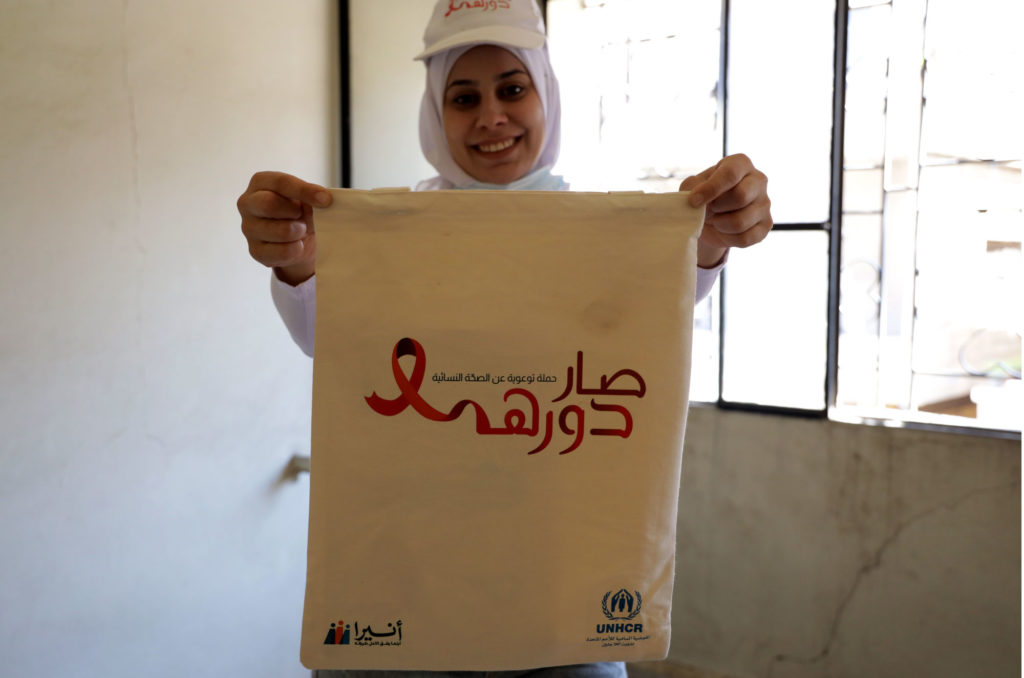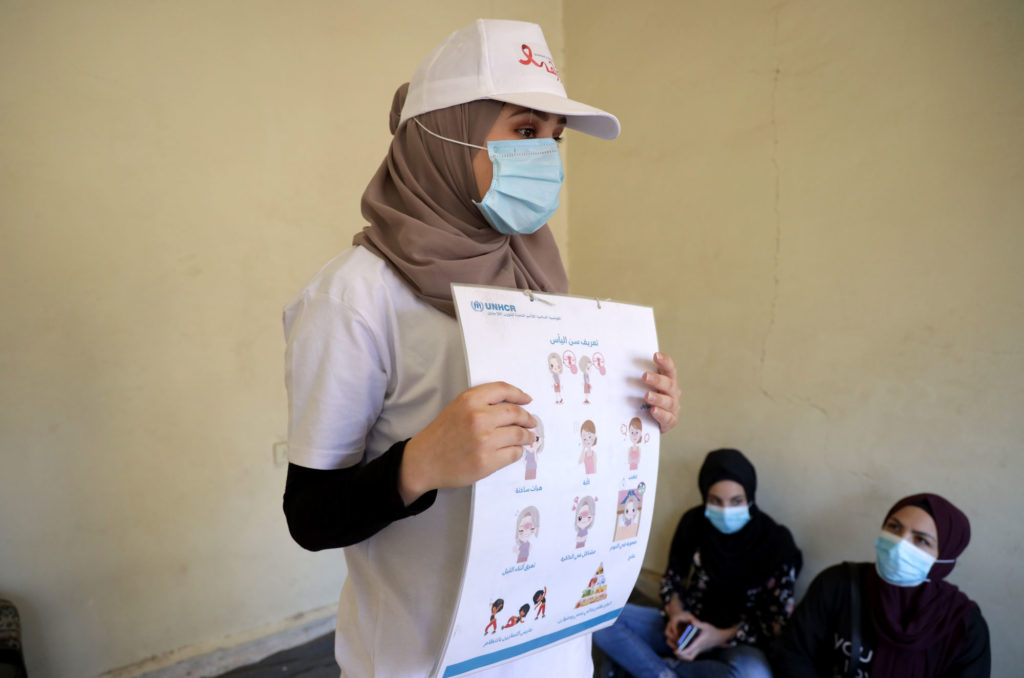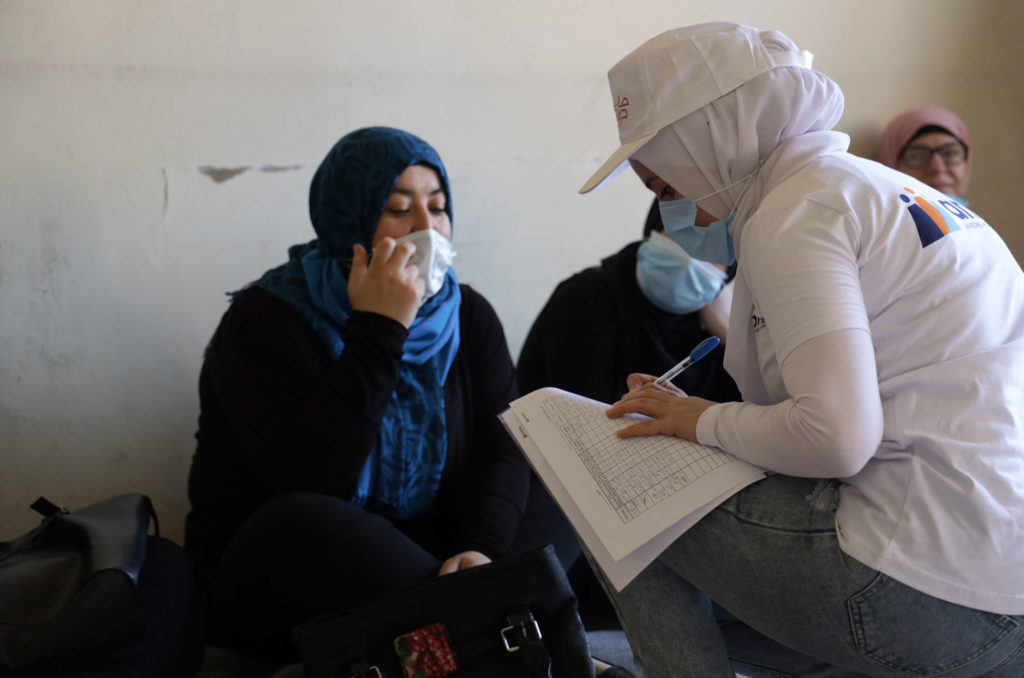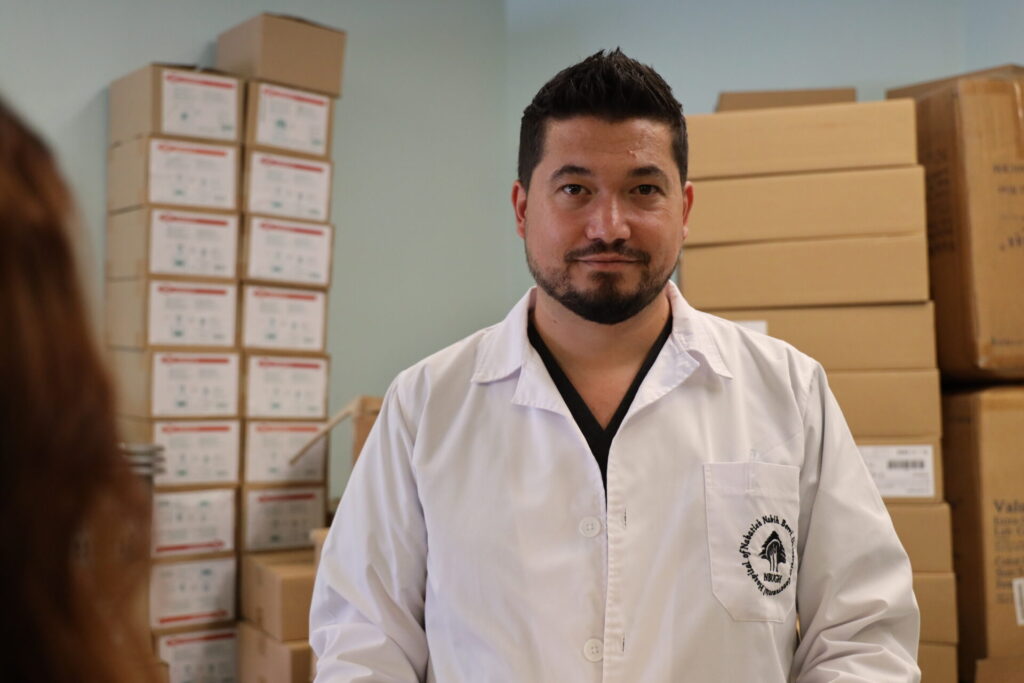Aug, 2021
Launching the menstrual hygiene management campaign in the Bekaa Valley
As development practitioners, we at Anera are aware of the importance of intersectionality in the fight for human security and the equitable use of the resources of our planet. This awareness is reflected in our programs. It is also reflected in the strategies of our donors and partners such as the UNHCR in Lebanon. Together, we launched a solid waste management program in the Bekaa that aims to address the garbage crisis and provide ecologically friendly solutions to waste management.
During the implementation of the project, an unanticipated yet crucial component was added along the way — menstrual awareness. Our project staff realized there was a lack of knowledge regarding the proper disposal of single-use period pads, as well as related issues such as the shortage of pads, which is affecting girls and women’s health.
With the support of UNHCR, we organized an awareness campaign which involved home visits to Lebanese and Syrian refugee women. The visits included awareness sessions on menstrual hygiene and safe disposal of waste, recycling and COVID-19 precautionary measures. Another crucial aspect of this campaign was the reinforcement of healthy personal hygiene measures and the distribution of family-sized hygiene kits, something that the families we serve requested during last year’s pilot phase of the campaign.


Israa, a volunteer with Anera for the program, says that “Because of the economic collapse and the insane rise in the prices of personal hygiene items for women, such as sanitary pads and others, they are no longer available to everyone, which can lead to serious health problems.”


The team also distributed reusable and washable pads, explained how to use them, and made sure that every woman and girl received a batch of single-use pads as well as a washable pads to help ease their transition.
Asmaa Jarrah, a community engagement officer with Anera, notes that we started the campaign in the areas of Baalbek, Majdal Anjar, Bar Elias and Arsal, and will expand to include more areas in the Bekaa Valley. "So far," she says, "we distributed around 2,470 women’s hygiene kits and 1,155 rations of reusable sanitary pads.”
“Our awareness session included topics about personal hygiene and traditional unhealthy habits," says Zeinab Karakala, a volunteer with Anera. "We also touched upon other relevant topics like puberty, early childhood marriage and menopause. The sessions were very useful, especially for young Syrian refugee women who had not received a proper education on these subjects.”
Tackling such subjects may seem straightforward to many. However, in the region, openly discussing menstruation and bodily issues remains taboo within many conservative communities. It takes a lot of patience and negotiation to achieve tangible behavioral change.
“We are in a conservative society that does not encourage such discussions — our periods are too ‘personal.’ I really benefited from the sessions," Ghofran says. The 21-year-old Lebanese woman lives in Baalbek.
"I learned a lot of new information, such as the harm caused by certain medications during the menstrual cycle, and also about misconceptions such as the [supposed] danger of exercising during menstruation.”




“We are in a conservative society that does not encourage such discussions."
Knowledge is power, and when women are educated about their bodies and their health needs, they are able to pass that along to younger generations. This will ultimately limit the problems caused by the current lack of knowledge.
“Today, I am able to educate my younger sisters and relatives about the menstrual cycle. I feel more confident. The presence of such initiatives in conservative societies is very important," Ghofran says. "If anything, we need more of this! Thank you Anera and UNHCR!”
The campaign team has distributed disposable sanitary pads to more than 5,000 beneficiaries, including more than 1,000 who received reusable pads. We also noticed a change in women’s attitudes towards washable pads, especially given the soaring prices of menstrual hygiene management products in Lebanon. These kinds of behavioral changes are also a small but tangible way to help mitigate Lebanon’s chronic garbage crisis.


